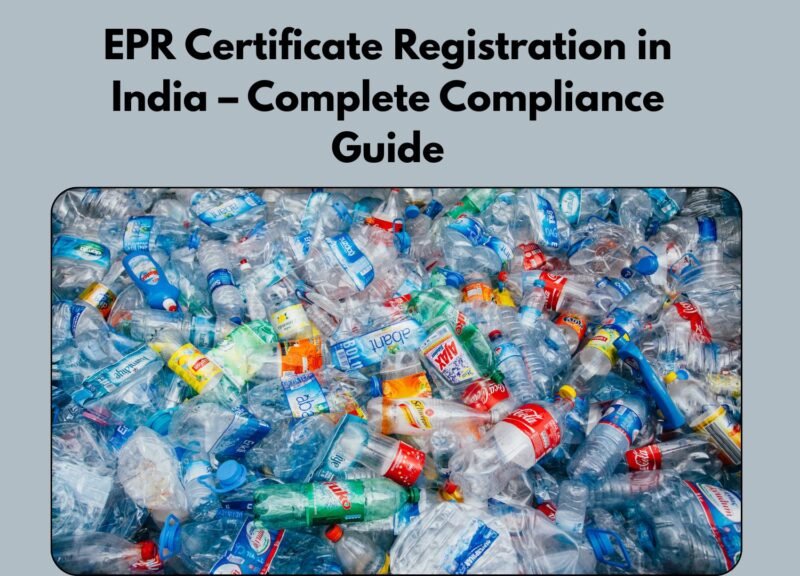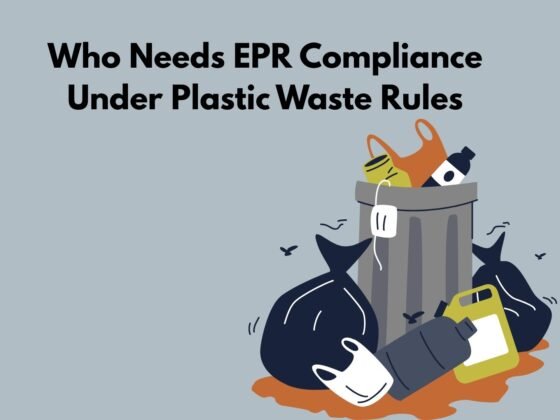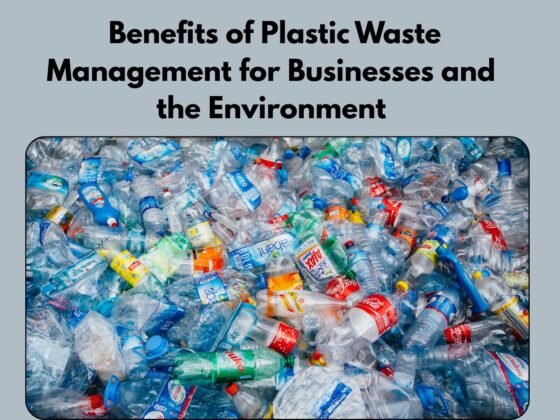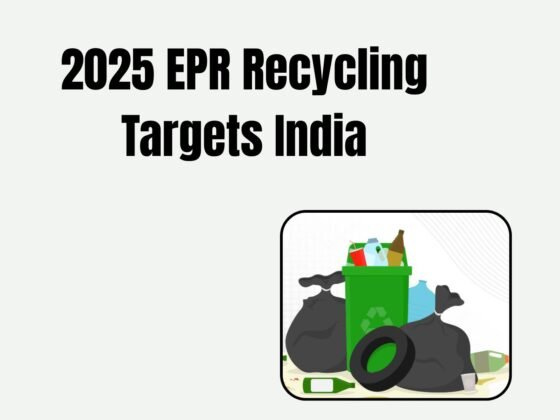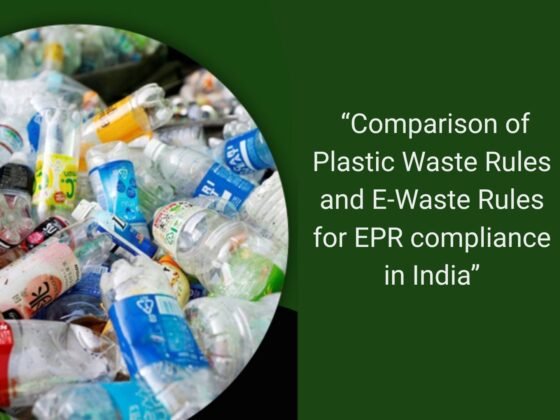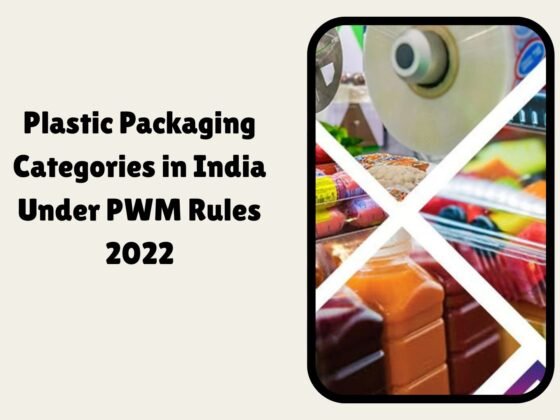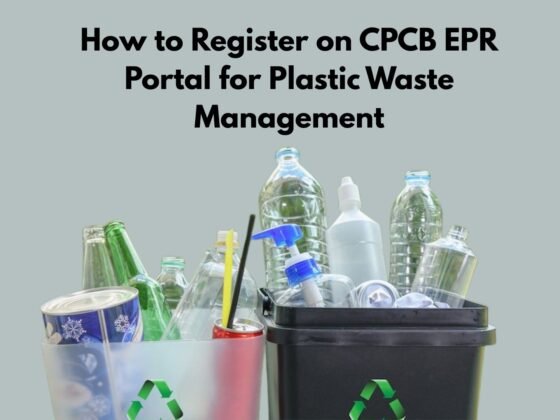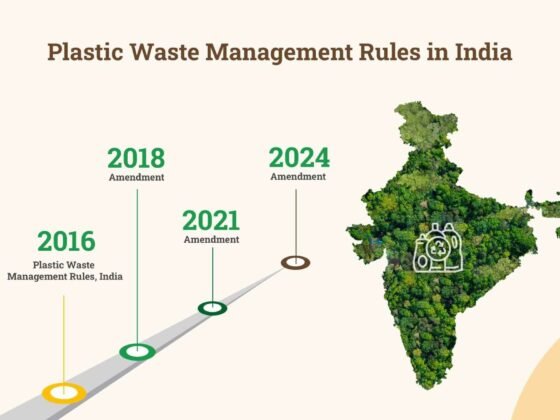EPR Certificates Explained – Compliance is not optional; without a valid EPR Certificate, your business cannot operate legally in India. Learn how to obtain and verify it before enforcement catches up.
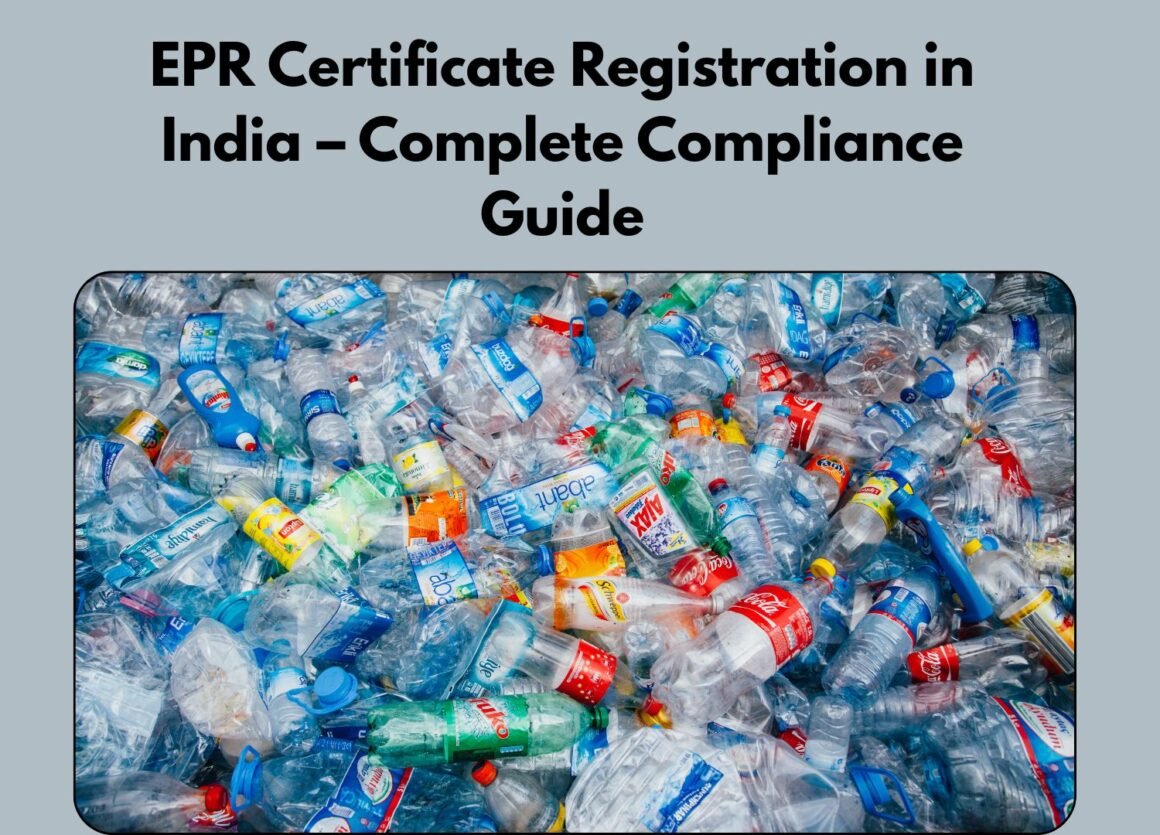
Extended Producer Responsibility (EPR) Certificates are official compliance registrations issued by the Central Pollution Control Board (CPCB) to Producers, Importers, and Brand Owners (PIBOs) who introduce products with plastic, electronic, or battery components in the Indian market. These certificates legally authorize a company to operate while taking responsibility for post-consumer waste management.
To obtain an EPR certificate, a business must first determine its applicable product category under the Plastic Waste Management Rules 2016, E-Waste Management Rules 2022, or Battery Waste Management Rules 2022. The company must then register on the CPCB EPR portal and submit supporting documents such as GST, PAN, CIN, IEC (for importers), and details of product packaging or components.
An EPR Action Plan showing how the waste generated will be collected and recycled must also be provided along with agreements with authorized recyclers or Producer Responsibility Organizations (PROs).
After verification, CPCB issues the EPR certificate along with a unique registration number. Compliance does not end after receiving the certificate—quarterly and annual reports must be filed, recyclers must issue EPR credits, and documentation must be maintained for audit.
To verify an EPR certificate, businesses should cross-check the registration number on the CPCB portal, confirm validity and category, and ensure recycler certificates are genuine. Fake certificates are circulating in India, and using them can result in heavy penalties and business suspension.
An authentic EPR certificate proves legal compliance, builds brand trust, enables customs clearance for importers, and prevents legal action under environmental law.
What is an EPR Certificate?
An Extended Producer Responsibility (EPR) Certificate is an official authorization document issued by the Central Pollution Control Board (CPCB) that permits a company to sell products in India while taking legal responsibility for managing their post-consumer waste. It applies under various waste management rules including:
- Plastic Waste Management Rules, 2016 (Amended 2022 & 2024)
- E-Waste Management Rules, 2022
- Battery Waste Management Rules, 2022
- Tyre Waste and Used Oil EPR drafts (upcoming)
The purpose of EPR is to shift the waste burden away from the government and municipalities, making businesses legally accountable for the waste generated from their products.
Who Needs an EPR Certificate?
EPR Certification is mandatory for:
- Producers (manufacturers of packaging or products)
- Importers (bringing any packaged product into India)
- Brand Owners (selling products under their own name)
- E-commerce entities placing packaged goods on the market
Even small D2C brands on platforms like Amazon, Flipkart, Meesho, Nykaa, and JioMart must have valid EPR Certificates to avoid legal penalties.
Why Is an EPR Certificate Important?
- Mandatory by law in India
- Required for customs clearance for importers
- Protects brands from fines and business suspension
- Builds ESG credibility and sustainability trust
- Essential for CPCB reporting and recycling compliance
Documents Required for EPR Certificate
| Document Type | Required For |
|---|---|
| GST & PAN copies | All businesses |
| CIN Certificate | Registered companies |
| IEC Code | Importers |
| Product packaging details | PIBOs |
| EPR Action Plan | Recycling strategy |
| Recycler/PRO Agreement | Recycling tie-up |
Step-by-Step Process to Obtain EPR Certificate
- Identify product type and applicable rule
- Register on CPCB’s EPR online portal
- Upload business and compliance documents
- Submit waste estimation report
- Attach agreement with certified PRO/recycler
- Submit application fee
- Await CPCB verification and approval
- Receive EPR Registration Certificate
How to Verify an EPR Certificate
To prevent fraud, always:
- Verify the EPR number on the CPCB portal
- Check certificate validity and waste category
- Confirm if PRO/recycler is CPCB-authorized
- Avoid uncertified consultants and fake recyclers
Penalties for Fake or No EPR Certificate
- Up to ₹1 Crore fine under Environmental Protection Act
- CPCB can suspend business operations
- Import shipments may be seized
- E-commerce delisting for non-compliance
Common Types of EPR Certificates in India
Different industries require different types of EPR certificates depending on the waste category they generate:
| Type of EPR Certificate | Applicable Industry | Regulation |
|---|---|---|
| Plastic EPR Certificate | FMCG, food & beverages, cosmetics, e-commerce, retail | Plastic Waste Management Rules 2016 (Amended 2022 & 2024) |
| E-Waste EPR Certificate | Mobile, laptop, home appliances, electronics | E-Waste Management Rules 2022 |
| Battery EPR Certificate | EV manufacturers, UPS/inverter brands, battery retailers | Battery Waste Management Rules 2022 |
| Used Oil EPR (upcoming) | Automotive service centers, lubricants | Hazardous Waste Management Rules |
| Tyre EPR (proposed) | Tyre manufacturers & importers | Draft Tyre EPR Notification |
Each category has different documentation needs, recycling targets, and reporting obligations.
Responsibilities After Obtaining an EPR Certificates Explained
Many businesses assume that getting the certificate is enough. That is incorrect. EPR is a continuous compliance process, not a one-time task. After certification, companies must:
- Fulfill annual recycling and collection targets
- Generate and manage EPR credits through recyclers
- Maintain collection and recycling records
- File Quarterly and Annual Returns on the CPCB portal
- Renew agreements with PROs and recyclers
- Provide proof of recycling (POR)
Failure to fulfill any of these responsibilities can result in suspension of the EPR registration.
Role of PROs in EPR Compliance
A Producer Responsibility Organization (PRO) is an authorized agency that helps companies meet their EPR obligations. They manage collection, recycling, transportation, and documentation.
Services Offered by PROs
- Collection of post-consumer waste
- Recycling through CPCB-authorized recyclers
- Issuing EPR recycling certificates
- Compliance reporting support
- Documentation and audit support
Working with a valid PRO is mandatory for medium and large enterprises.
EPR Credits – How They Work
EPR compliance involves a recycling credit system. Businesses must collect and recycle plastic or product waste based on their market output. Once waste is recycled, the authorized recycler generates an EPR credit that counts toward the company’s yearly compliance.
For example:
- A company using 100 tonnes of plastic packaging annually must recycle at least 70 tonnes in 2025
- A certified recycler processes the waste and uploads proof on the CPCB portal
- The company receives EPR credits for 70 tonnes – meeting compliance
This credit trading system ensures transparency in recycling.
Risks of Fake EPR Certificates Explained
Fraud has increased as EPR rules get stricter. Many unregistered consultants and recyclers offer fake EPR certificates at low prices. These are illegal and easily traceable by CPCB.
Warning Signs of Fake Certificates
- Certificate issued on unofficial letterhead
- No CPCB registration number
- No online verification link
- Issued without compliance documents
- No supporting POR (Proof of Recycling)
Using a fake EPR certificate is a punishable offence under Section 15 of the Environment Protection Act.
How to Prevent EPR Fraud
✅ Always verify certificate authenticity on the CPCB portal
✅ Work only with CPCB-registered PROs
✅ Do not buy recycling credits without documentation
✅ Keep digital and physical compliance records
EPR Certificates Explained Validity and Renewal
EPR certificates are valid for 1 to 5 years, depending on the waste category. Companies must apply for renewal before expiry to avoid penalties.
Conclusion: EPR Certificates Explained: How to Obtain and Verify Them
EPR Certificates are now mandatory for all businesses using plastic packaging, electronics, batteries, or importing goods into India. Companies must not only obtain registration but also fulfill annual recycling targets to stay legally compliant.
FOR MORE BLOGS – beyondthepunchlines.com

 Add to favorites
Add to favorites
